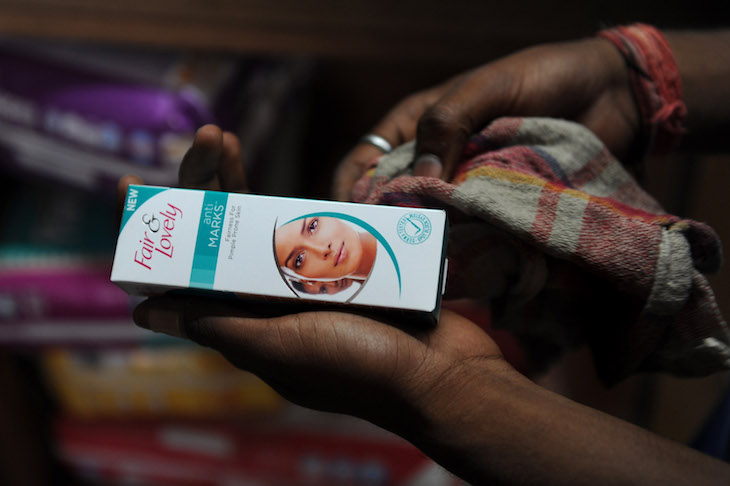In parts of Africa and the West Indies women are so anxious to ‘whiten up’ that they use skin-lightening creams. The British writer and broadcaster Afua Hirsch sees this as a regrettable consequence of the aristocracy of skin colour as instituted by British merchant-capitalists during slavery. (Skin must first be bleached before it can be considered beautiful.) Of mixed Jewish-African parentage, the 36-year-old Hirsch is proud to call herself black. In this much-hyped book she sets out to question lingering obeisance to the idea of colonial Britain and to that ghost of the British Empire, the Commonwealth. Why does it persist so?
Affection for Britain remains surprisingly strong in Commonwealth countries. West Indian pseudo-colonials of the sort portrayed by Sam Selvon in his 1956 novel The Lonely Londoners survive in the colonial-era law courts of India, in the Sandhust-educated echelons of the Jamaican army and in the Nigerian civil service. Black and mixed-race British people, if they are not themselves to be fatally hidebound by the imperial past, must abandon their streak of self-hatred and the colonially induced dark area of self-denial in their African slave heritage. So says Hirsch, a self-confessedly ‘privileged’, Oxford-educated woman raised in suburban Wimbledon back in the Thatcherite 1980s. Just as the Jamaican nationalist Marcus Garvey banned adverts for skin-bleaching chemicals from his ‘black pride’ newspaper Negro World, so Hirsch calls on black women to chuck out their straight hair wigs and bottles of skin bleaches and go Afro-natural. Even Meghan Markle had tight-curled hair as a child. It is only a shame that her hair is now so straight (or ‘tall’ as they say in Jamaica).
An amalgam of autobiography and polemic, Brit(ish) scorns all perceived nostalgia for the imperial past. To Hirsch it seems surprising — shocking, even — that some older Commonwealth citizens should hold romantic opinions of empire or display a pious Anglo-patriotism. (‘It’s a British thing, this nostalgia for empire,’ she complains.) In all likelihood, such nostalgia has more to do with emotions invested in remembrance of the past — the legendary period of their youth, when lives were organised and given meaning by the Union Jack. Hirsch, less forgiving of nostalgia, has argued elsewhere that Nelson’s Column in Trafalgar Square should be torn down: the high seas admiral was a pro-slavery ‘white supremacist’ and cad. Driven by a powerful sense of racial awareness and grievance, Brit(ish) can be tough-going at times, especially if you happen to have a sense of humour. (Zora Neale Hurston the author is not.)
Dead earnest, Hirsch explores her Judeo-Ghanian ‘identity’ as it played out in the south-west London of her teens, when she pretended to be Jamaican (‘jerk chicken and urban youth culture’ seemed more cool to her than her African identity). The author’s partial ‘whiteness’, inherited from her Jewish father, seems to have had an ambivalent effect. On the one hand, ‘I am the eternal outsider’, Hirsch tells us; on the other, her paler shade of black has conceivably made it easier for her to deal with the world at large — that is, with white people.
She has worked as a high-profile journalist on the Guardian and was called to the Bar (what could be more overwhelmingly white and stuffed with antiquated, precedence-ridden fogeys than the London Inns of Court?). Still, Britain’s class and racial divides remain stubbornly in place, we are told, again and again. An insidious ‘shadism’ has ensured that a majority of white (or near white) people occupy key government posts, while the black (or near black) population remains separated from them by the powerlessness and poverty of their lives. Maybe that is because Britain is 82 per cent white.
At any rate, Britain must come to terms with its involvement in the slave trade (‘the biggest atrocity of human history’) and the arrogance attendant on its empire-building. Hirsch is critical even of Black History Month because it implies that black history is only worth studying for four weeks. And she perceives a racist element in white middle class feminism (Reni Eddo-Lodge did, too, in her recent book Why I’m No Longer Talking to White People About Race).
In some ways an admirable guide to our mixed-up, mixed-race modern nation, Brit(ish) is nevertheless something of a penance to read, as everything in it is seen through the narrow, hating and occasionally hateful lens of race and colour. No doubt that is the point, yet most British people today surely take no such great interest in colour, do they? Predictably, online trolls and bloggers have tried to show Hirsch up as a crypto-racist. In 1960s and 1970s Britain, not uncommonly, conservatives depicted Garveyite Black Power movements as an equivalent, anti-white racism, ‘Enoch Powellism’ in reverse. Needless to say, the analogy is absurd: people with white skin generally enjoy the liberty of not having to define themselves in terms of race. But, as Zora Neale Hurston said of Marcus Garvey, Brit(ish) could do with ‘lightening up’ in the humour department.






Comments